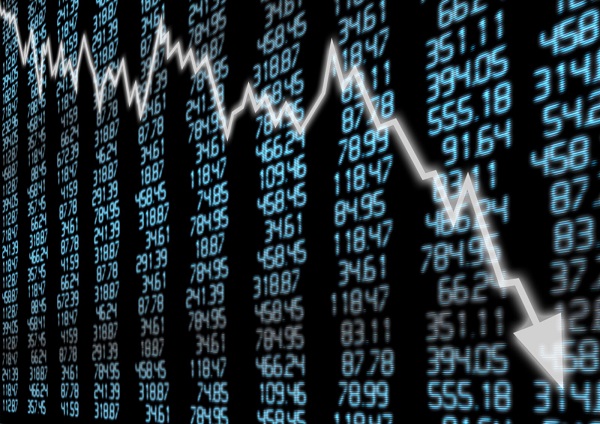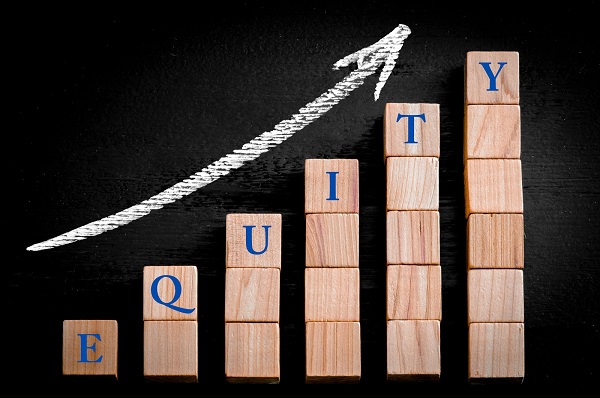7 Reasons This Isn’t the Same as 2008
When it comes to the housing market in 2020, experts can agree on one thing: circumstances today are very different than the 2008 housing market crash. While nobody has a crystal ball to see into the future, lots of indicators and metrics within the industry are positive. Here are seven significant ways the housing market looks to emerge strong this year:
- Mortgage Rates Are at Nearly Record Lows
 With mortgage rates being as low as they are, those buyers who are in a position to purchase are highly incentivized right now. Anyone looking to jump into the housing market has a prime opportunity to lock in these low, fixed thirty-year rates.Don’t think interest rates make that big of a difference to your loan? Let’s look at some example numbers with a variance of just 1 percent.
With mortgage rates being as low as they are, those buyers who are in a position to purchase are highly incentivized right now. Anyone looking to jump into the housing market has a prime opportunity to lock in these low, fixed thirty-year rates.Don’t think interest rates make that big of a difference to your loan? Let’s look at some example numbers with a variance of just 1 percent.
Mortgage Amount: $300,000
Interest Rate (Thirty-Year Fixed): 4 Percent
Monthly Payments: $1,432
Total Cost of Mortgage: $515,609
Interest Rate (Thirty-Year Fixed): 3 Percent
Monthly Payments: $1,265
Total Cost of Mortgage: $455,332
In this fictional scenario, locking into a 3 percent rate rather than a 4 percent rate means you save $167 on your mortgage every single month, and you save $60,277 over the life of your thirty-year mortgage.
(Want to play with numbers specific to your situation? Check out this easy mortgage calculator.)
Better interest rates bode well for the industry in two important ways. One, mortgages are simply more affordable, meaning defaults on loans are less likely. Two, people understand how advantageous low interest rates can be, so people are still motivated to purchase property. Unlike 2008, people are still being actively approved for mortgages, and those people are following through on home purchases.
- It’s Harder to Qualify for a Mortgage Now

One of the big contributing factors to the 2008 housing market crash was the ease with which people could get mortgages. People who were liable to default were still allowed to take on the financial burden, and coupled with many other factors, the end result was pretty catastrophic. Today, the mortgage landscape is entirely different. Anyone who has qualified for a mortgage now has gone through a stringent underwriting process, which verifies employment (status and history), assets, and more. Those who have mortgages today are less likely to default, and that is helping shore up the industry as a whole. - The CARES Act Provides Much-Needed Relief
 The CARES Act was signed into law March 27, 2020, and it offers financial assistance to the American public in a variety of ways. One significant facet of the law is the ability to get mortgage forbearance for up to one year. The program is available to those with a government-backed mortgage (about 75 percent of mortgage holders) who are experiencing financial distress due to the pandemic. Another key part of the law is the suspension of student loan payments and interest through September 30, 2020. This applies to anyone who has a federally held student loan.By freeing up money that would otherwise go to student loans, more people will be able to continue making their mortgage payments on time without interruption, and for those who are experiencing serious financial hardship due to the crisis (from illness, job loss, or significant salary reduction), the mortgage forbearance is another way to stem a tide of needless foreclosures.
The CARES Act was signed into law March 27, 2020, and it offers financial assistance to the American public in a variety of ways. One significant facet of the law is the ability to get mortgage forbearance for up to one year. The program is available to those with a government-backed mortgage (about 75 percent of mortgage holders) who are experiencing financial distress due to the pandemic. Another key part of the law is the suspension of student loan payments and interest through September 30, 2020. This applies to anyone who has a federally held student loan.By freeing up money that would otherwise go to student loans, more people will be able to continue making their mortgage payments on time without interruption, and for those who are experiencing serious financial hardship due to the crisis (from illness, job loss, or significant salary reduction), the mortgage forbearance is another way to stem a tide of needless foreclosures. - Experts Expect Home Prices to Grow…Just More Slowly
 One promising indicator of the housing market’s strength is its initial response to the pandemic. While the stock market plunged precipitously in the wake of the crisis, home prices did not. According to Realtor.com data, median listing prices increased 4.4 percent year over year in the first two weeks of March (pre-pandemic). In the subsequent weeks ending April 4, April 11, and April 18, those listing prices increased 1.6 percent, 0.8 percent, and 0.3 percent, respectively. Just several weeks after that, according to another Realtor.com report, the weeks ending May 2, May 9, and May 16 saw year-over-year median listing prices increase 1.6 percent, 1.4 percent, and 1.5 percent, respectively.This points to the housing market essentially being in a holding pattern. Ongoing appreciation does seem to have slowed, but homeowners can take heart that significant price decline doesn’t seem to be on the table.The one caveat some experts note is between low-end homes and high-end homes. Pricier homes tend to be purchased by older homeowners who are trading up by capitalizing on the equity in their existing properties. Since older people are disproportionately affected by the pandemic, there’s a chance they will be less active in the housing market in the next six to twelve months, meaning a slight decrease in home values might happen at the higher end of the market.
One promising indicator of the housing market’s strength is its initial response to the pandemic. While the stock market plunged precipitously in the wake of the crisis, home prices did not. According to Realtor.com data, median listing prices increased 4.4 percent year over year in the first two weeks of March (pre-pandemic). In the subsequent weeks ending April 4, April 11, and April 18, those listing prices increased 1.6 percent, 0.8 percent, and 0.3 percent, respectively. Just several weeks after that, according to another Realtor.com report, the weeks ending May 2, May 9, and May 16 saw year-over-year median listing prices increase 1.6 percent, 1.4 percent, and 1.5 percent, respectively.This points to the housing market essentially being in a holding pattern. Ongoing appreciation does seem to have slowed, but homeowners can take heart that significant price decline doesn’t seem to be on the table.The one caveat some experts note is between low-end homes and high-end homes. Pricier homes tend to be purchased by older homeowners who are trading up by capitalizing on the equity in their existing properties. Since older people are disproportionately affected by the pandemic, there’s a chance they will be less active in the housing market in the next six to twelve months, meaning a slight decrease in home values might happen at the higher end of the market. - People Have More Equity in Their Homes Now
 Unlike in 2008, when the housing market lost $2 trillion in value, people today have significantly more equity in their homes. According to CoreLogic, the average family with a mortgage had roughly $177,000 in home equity at the conclusion of 2019.At the end of the fourth quarter in 2019, the national aggregate negative equity value was about $283 billion, down roughly 6.6 percent from $302.6 billion in the third quarter of 2019. By contrast, negative equity peaked in the fourth quarter of 2009, with 26 percent of mortgaged residential properties affected.With fewer homes underwater, people are simply in a better financial position today. They are free to sell without losing money on the overall transaction, which then frees them to buy again, if they choose to do so. In this way, the transactions that fuel the housing market don’t come to a grinding halt. In 2008, they did; the situation today looks very different.
Unlike in 2008, when the housing market lost $2 trillion in value, people today have significantly more equity in their homes. According to CoreLogic, the average family with a mortgage had roughly $177,000 in home equity at the conclusion of 2019.At the end of the fourth quarter in 2019, the national aggregate negative equity value was about $283 billion, down roughly 6.6 percent from $302.6 billion in the third quarter of 2019. By contrast, negative equity peaked in the fourth quarter of 2009, with 26 percent of mortgaged residential properties affected.With fewer homes underwater, people are simply in a better financial position today. They are free to sell without losing money on the overall transaction, which then frees them to buy again, if they choose to do so. In this way, the transactions that fuel the housing market don’t come to a grinding halt. In 2008, they did; the situation today looks very different. - Real Estate Transactions Will Likely Get Delayed, Not Cancelled
 The economy prior to the crisis was strong. Many experts take this to be a good sign of a housing industry recovery. People who would have bought or sold in the spring might simply be pushing that transaction to the fall. Lawrence Yun is the chief economist at the National Association of Realtors, and he is quick to point out the difference between today’s circumstances and the factors that led to the 2008 crash: “[It’s] worth noting that, unlike 2008, there is no subprime lending and overproduction by home builders. Sales will tumble for a few months, but prices will hold on. With the stimulus package, any lost sales are likely to show up as a delayed transaction in the second half of the year.” (For more information, see the full Bankrate report.)
The economy prior to the crisis was strong. Many experts take this to be a good sign of a housing industry recovery. People who would have bought or sold in the spring might simply be pushing that transaction to the fall. Lawrence Yun is the chief economist at the National Association of Realtors, and he is quick to point out the difference between today’s circumstances and the factors that led to the 2008 crash: “[It’s] worth noting that, unlike 2008, there is no subprime lending and overproduction by home builders. Sales will tumble for a few months, but prices will hold on. With the stimulus package, any lost sales are likely to show up as a delayed transaction in the second half of the year.” (For more information, see the full Bankrate report.) - Real Estate Has Been Deemed Essential Business
 The policies vary somewhat based on geographic location, but in general, real estate has been given the status of essential business. If you’re wondering if you can sell your home during this crisis, the answer is yes! The landscape definitely looks different, but showings are still happening (with added safety precautions), and people are still successfully buying and selling real estate right now. Because these transactions are still going through, we’re not liable to see the same kind of industry collapse we saw in 2008. (If you’re currently thinking about putting your home on the market, we’ve compiled these ten tips for successfully listing during the pandemic.)
The policies vary somewhat based on geographic location, but in general, real estate has been given the status of essential business. If you’re wondering if you can sell your home during this crisis, the answer is yes! The landscape definitely looks different, but showings are still happening (with added safety precautions), and people are still successfully buying and selling real estate right now. Because these transactions are still going through, we’re not liable to see the same kind of industry collapse we saw in 2008. (If you’re currently thinking about putting your home on the market, we’ve compiled these ten tips for successfully listing during the pandemic.)
Many leading experts in the housing industry feel confident the market can weather this storm well. If you’re thinking about buying or selling in the Maryland; Virginia; or Washington, DC, region and you have questions, don’t hesitate to reach out! We have over thirty-five years of experience in real estate, and we’d love to put our expertise to work for you!










